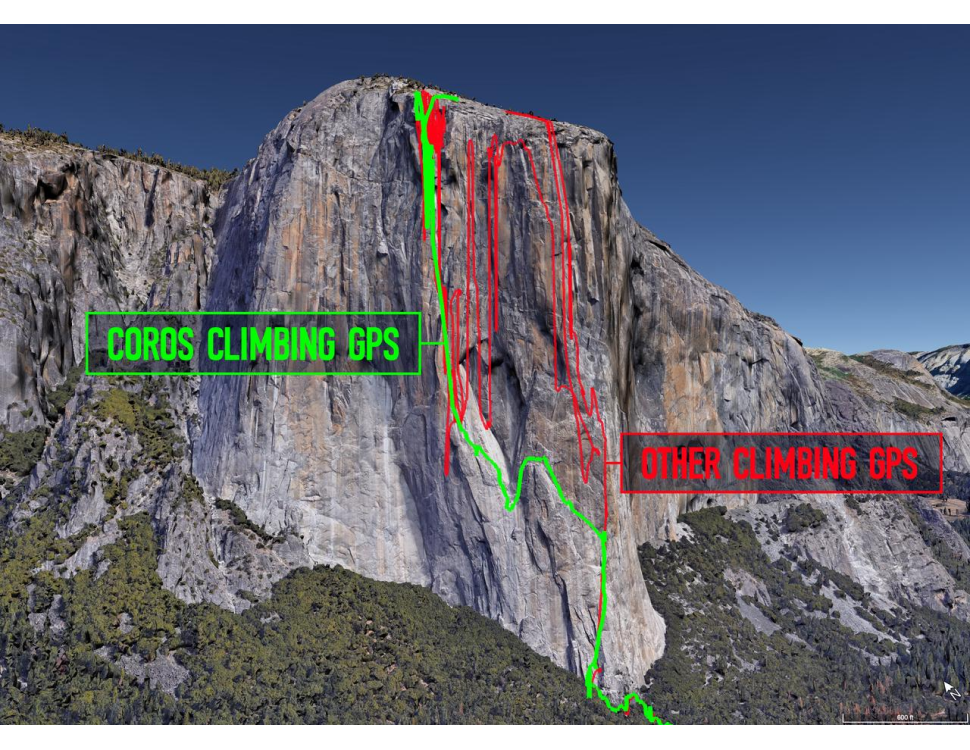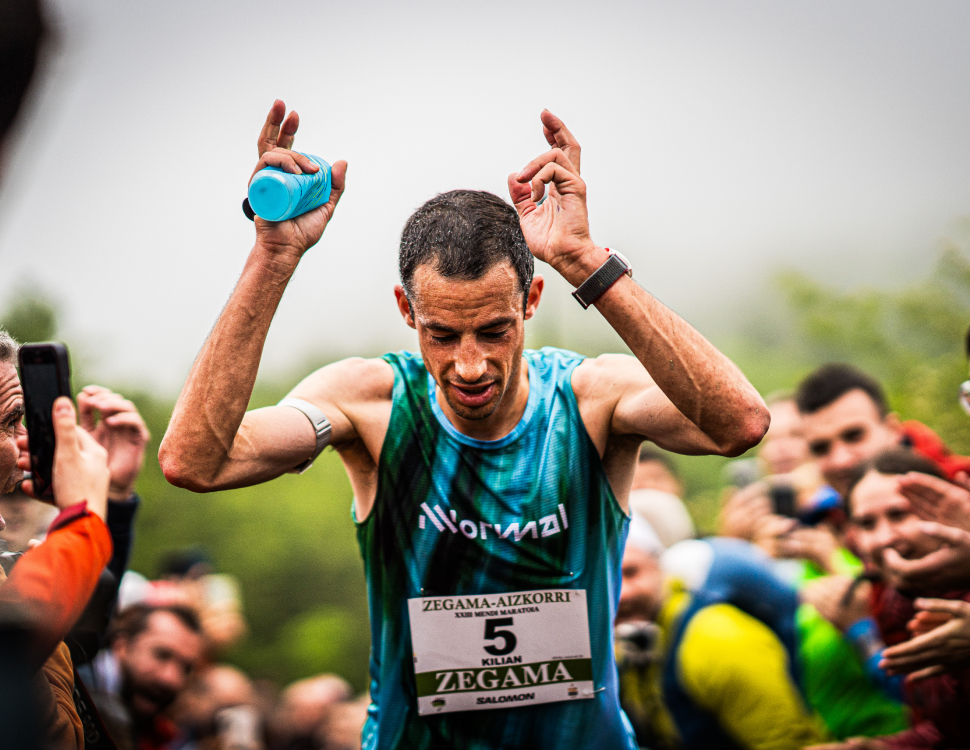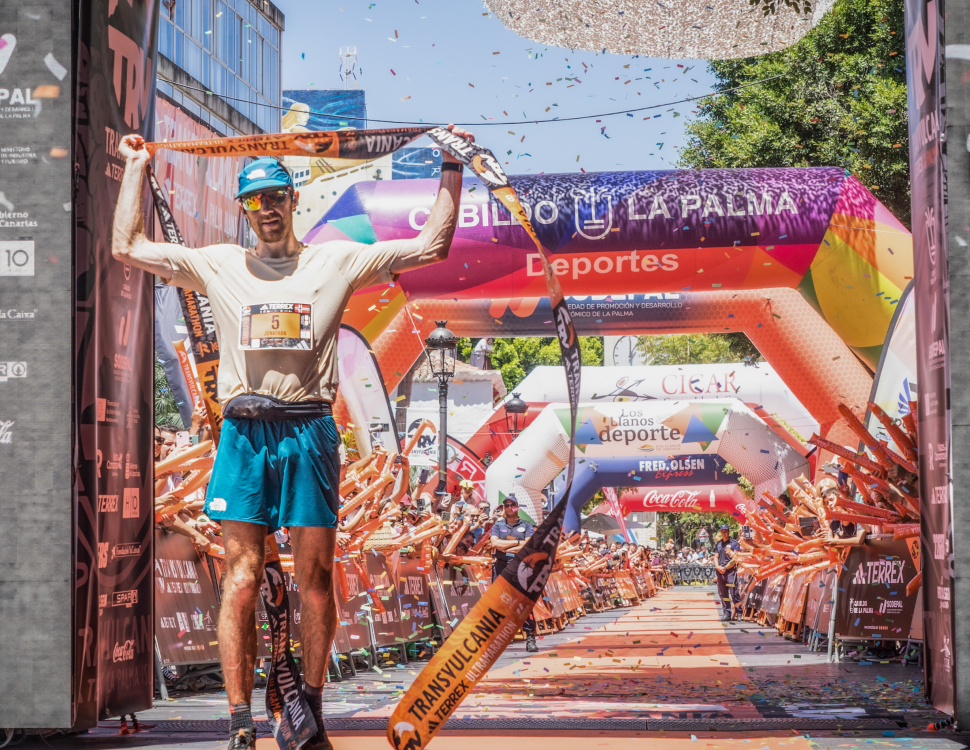If you're reading this, you're probably preparing for an ultra or in the final days before getting ready to toe the start line of your race! Regardless of where you are in your planning or training, it's always a good time to review the do's and don'ts of race week for ultra running.
Training for an ultra is a big commitment. Below COROS Coaches provide some of their tips on how to maximize your race week prep to ease nerves and help focus on what truly matters: enjoying the race and executing your strategy!
Race Week Prep Tips
Sleep
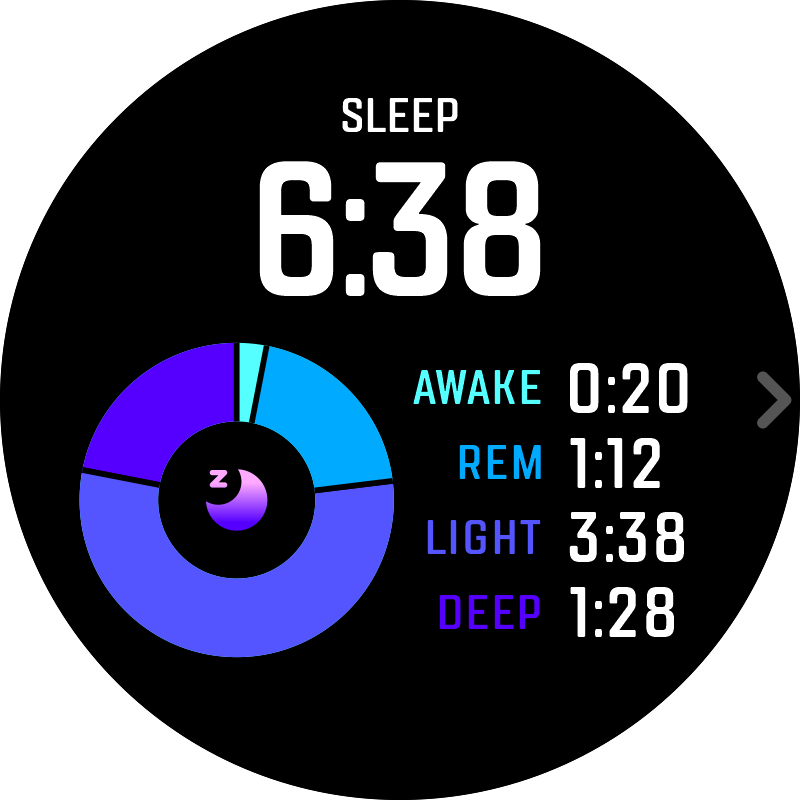
Do:
As you enter race week, the goal is to ensure you are providing your body with ample rest and recovery. Regardless of your best intentions, the night before the race is always the hardest to sleep. To make up for this, ensure you maximize rest earlier in the week. The amount of sleep during race week is far more important than the amount of sleep on race night. Plan ahead and get rest!
Don't:
While sleep is important, we don't want to disrupt your normal circadian rhythm. Your circadian rhythm is responsible for your bodies natural tendency to sleep, wake up, brain waves and other physiological responses during certain portions of the day. If you are putting a priority on sleep and sleeping in until 9AM, but you usually wake up at 6AM, you may be doing yourself more harm than good. Do your best to stay on your normal routine, and add rest in chunks when possible.
Race Week Training
Do:
Your training prior to race day should allow you to recover, but also stay fresh. The best tactic is to train on course for short segments so you can become familiar with the terrain and build confidence. Aim to familiarize yourself with the course without over stressing yourself
Don't:
There are two things we want to avoid during race week. First, we want to avoid testing our fitness. Pushing yourself this week will only takeaway from your race day abilities. Second, we want to avoid not training at all. By not training, we allow our body to become stale and lethargic. If you're wondering what the right amount to train is, we would suggest getting your COROS recovery timer in the 90%-100% range which would be a fantastic taper.
COACHES INSIGHTS: You have put in weeks and months of training, this is the time that you need to trust yourself and truly embrace the taper. At this point, you are not going to gain any additional fitness. Use this taper time to visualize your race day!
Race Strategy
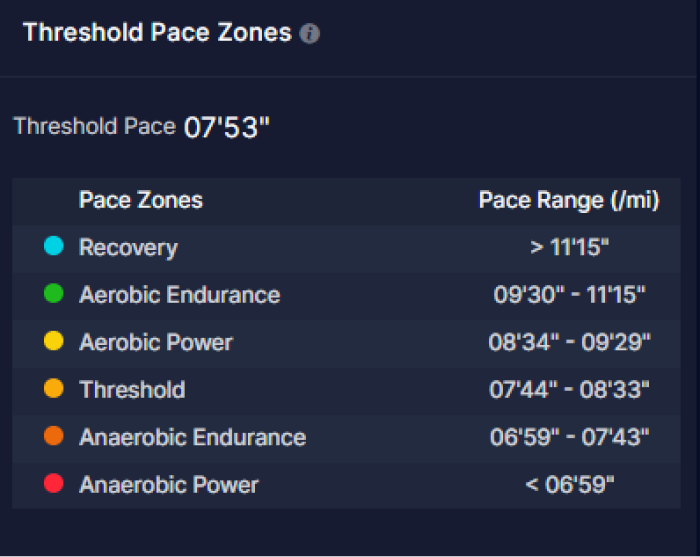
Do:
Part of race day success is planning for best case scenario, likely scenario, and worst case scenario. Anything can happen on course, so its best to have an A, B, and C plan! This plan should include knowing the route, knowing the terrain, and having set effort levels that you do not exceed. Within an ultra, it's recommended to pace nearly all of your time in your Aerobic Endurance zone or below. The longer you spend above this zone, the higher chances you'll need to drastically slow down later.
Don't:
It would be a mistake to go into your race with a "lets see what happens" mentality. Many athletes without a plan go out far too fast and end up going slower than they thought, or having to DNF somewhere on course. Be sure to know the terrain and effort level ceilings so you can be prepared and make adjustments as needed. To help avoid overexerting yourself to hit a specific pace, especially on the more technical courses, you can utilize your Effort Pace.

Race Day Nutrition
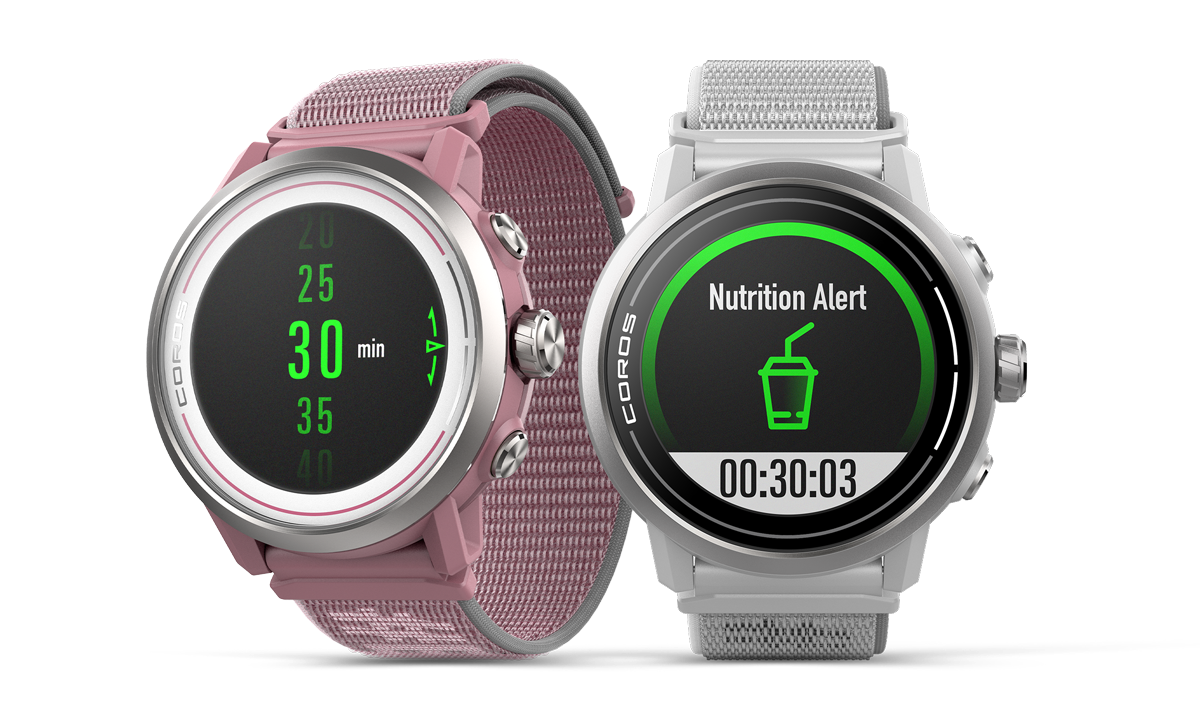
Do: You practiced fueling and what works best for you during your training. To have one less thing to worry about while running, you can set up nutrition alerts to remind yourself to take your fuel anywhere between from every 15 mins to 60 mins.
Don't: This is not the time to try new foods and cause yourself an upset stomach. During an ultra marathon, it's common to get an upset stomach because your body is working hard and blood flow is directed away from your digestive system. Consuming lots of energy gels and drinks with no set timing can overwhelm your stomach and cause discomfort. If/when that happens grab for carbonated beverage at the aid stations and avoid skipping over your nutrition alerts.
GPS Watch Setup
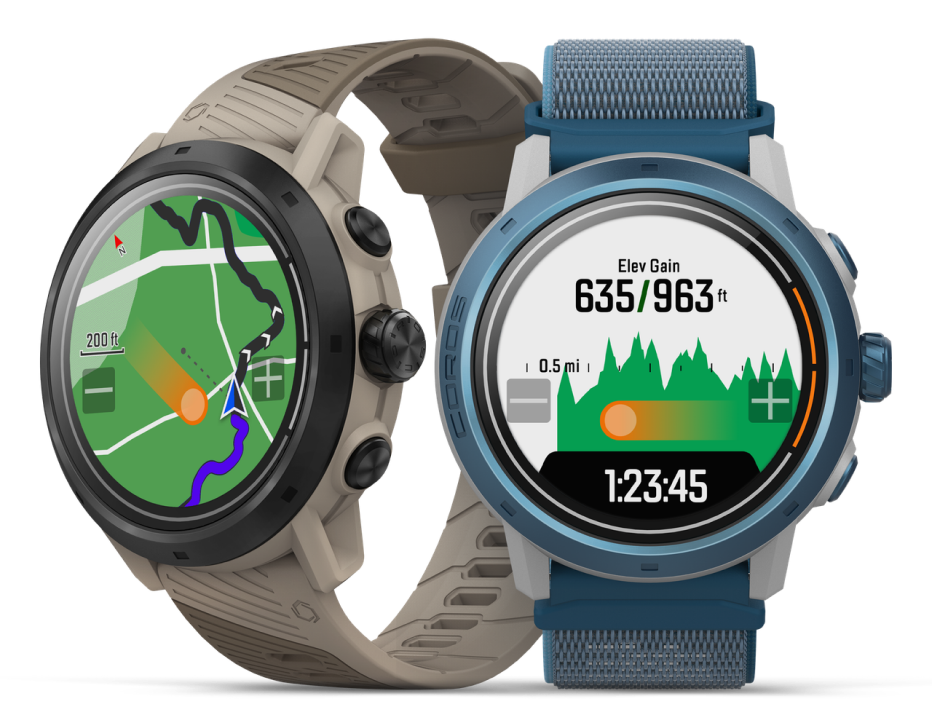
Do:
When setting up your watch for success, you should download the route and input way points such as aid stations. You should also have your data fields set for what you need to guide you throughout the race. Your watch should serve as a tool and only provide you with the most important information to help you fulfill your race strategy.
Don't:
Now is not the time to try out new data fields or metrics. While GPS watches have a ton of features, we only want to focus on those most important to us. If you have been training by heart rate all year, there is no reason to even have pace on your watch. Similar to our packing notes, continue with what has worked throughout training. Don't try anything new on race day. It will only create more confusion and distract you from your intended goals.
Packing
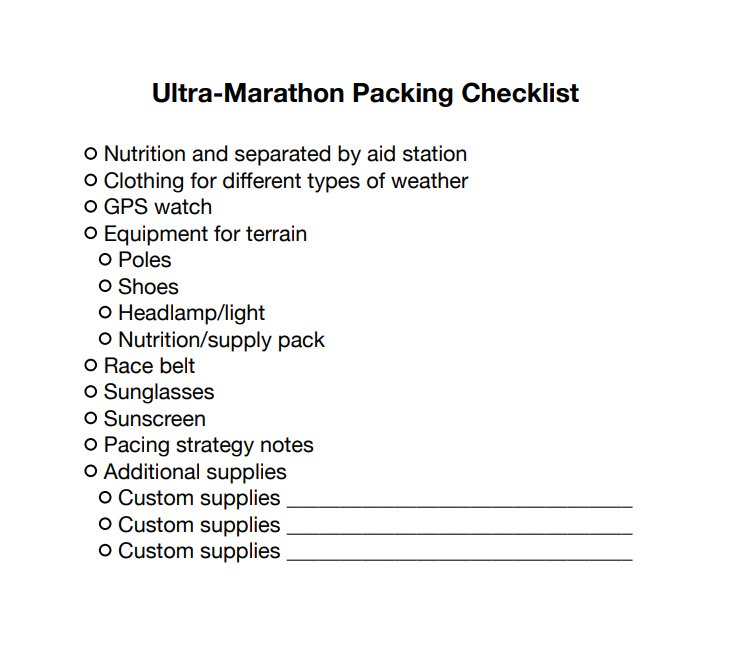
Do:
When packing, go with the equipment and nutrition you have been using in training. Be sure to write out a checklist of all the things you will need to ensure you don't leave anything behind! It also helps to lay out nutrition and clothing needed at different aid stations so your crew will have everything organized and ready for your arrival
Don't:
It's easy to overpack. You've been training for this race for a long time and don't want to forget something. We will make this easy for you! If you haven't used something in training, don't try something new on race day! Pack what you know works and make things as simple as possible. Having a bunch of extra items will only confuse you and your crew during the later stages of the race. You will be functioning on limited sleep and extra distractions just make for a chaotic experience. Test all of your equipment in training, and then pack what you know works!
Final Race Day Reminders
Ultra races are intense! Even if you start at a slow pace (which is advised), things can quickly become challenging. With the nature of these races lasting for prolonged times, problems tend to add up and cause trouble later on. Keeping your focus simple will help as you get tired and sleep-deprived. Here are some final thoughts from COROS Coaches:
- Plan in advance
- Make a checklist
- Plan for multiple scenarios
- Utilize your GPS Watch as a tool to help you accomplish your goals
Most importantly, remember to enjoy the process as you start your race and explore perfection!
How Can COROS Coaches Help?
COROS Coaches are a team of dedicated and certified coaches who can guide you in your training and understanding your metrics, for free. If you have last-minute questions about your upcoming ultra marathon or training questions in general, send an email to coach@coros.com.
/fit-in/0x18/coros-v2/images/common/logo_black.png)

